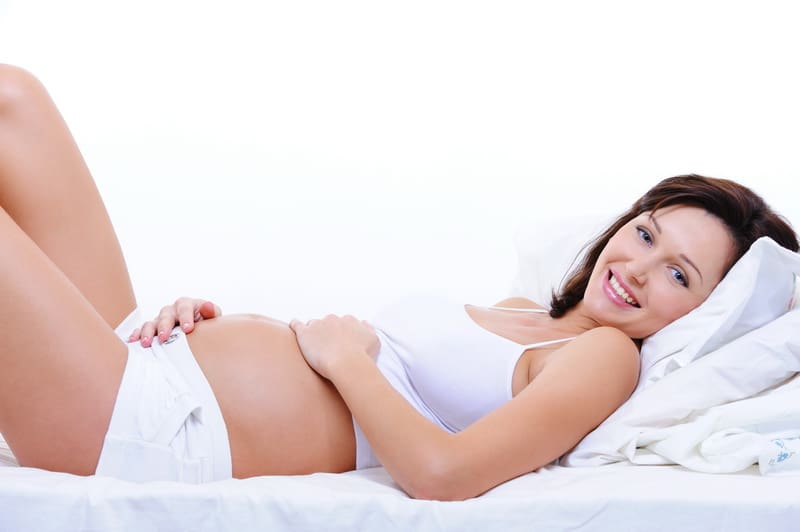Losing a pregnancy is one of the most difficult experiences a woman can go through. After miscarrying, many women wonder if they will ever be able to have a successful pregnancy. While there is no guarantee that a woman will get pregnant after a miscarriage, there are some things that can make it easier. If a woman has a miscarriage, her body is already primed for pregnancy. The body starts to produce pregnancy hormones as soon as a fertilized egg attaches to the uterine wall. When a miscarriage occurs, these hormone levels drop suddenly. This can throw off the body’s natural balance and make it harder to get pregnant. There are also emotional factors to consider after a miscarriage. The loss can be devastating and many women need time to grieve. It can be hard to relax and let your body do what it needs to do to get pregnant. If you’re feeling ready to try again, there are some things you can do to help increase your chances of success.
1. It is a common misconception that it is easier to get pregnant after a miscarriage. 2. There is no medical evidence to support this claim. 3. In fact, there is some evidence to suggest that the opposite may be true. 4. A study published in 2008 found that women who had a miscarriage were less likely to conceive within six months than women who did not miscarry. 5. There are a number of possible explanations for this, including hormonal changes and psychological effects. 6. It is important to speak to a doctor if you are considering trying to conceive after a miscarriage, as they can provide guidance and support. 7. If you have experienced a miscarriage, remember that it is not your fault and that you are not alone.
1.
No definitive answer exists to this question, as everybody experiences different fertility patterns. However, some research suggests that the probability of getting pregnant may be higher after a miscarriage. One study found that the chance of getting pregnant within six months after a miscarriage was about 70%, and within twelve months, the probability increased to 80-85%. It is important to note that miscarriages are common, with as many as one in five pregnancies ending in miscarriage. Therefore, it is possible to get pregnant after a miscarriage without it being indicative of anything special. There are many possible reasons why the probability of getting pregnant may be higher after a miscarriage. One possibility is that the uterine lining becomes thicker after a miscarriage, making it more hospitable for a fertilized egg. Another possibility is that the levels of HCG (human chorionic gonadotropin), a hormone involved in pregnancy, may increase after a miscarriage. This increase in HCG levels may help the egg to implant in the uterus. There is no one right answer to this question, as each person’s fertility pattern is unique. However, some research suggests that the probability of getting pregnant may be higher after a miscarriage. If you are trying to conceive, it is important to talk to your doctor about your individual fertility pattern and what you can do to increase your chances of success.
It is a common misconception that it is easier to get pregnant after a miscarriage.
It is a common misconception that it is easier to get pregnant after a miscarriage. The reality is that it can be just as difficult, if not more so, to conceive again after losing a pregnancy. For many women, the emotional toll of a miscarriage can be just as devastating as the physical one. After going through the grief and sadness of losing a baby, the last thing they may want to do is try to get pregnant again. And even if they do want to have another child, the anxiety and stress of whether or not they will be able to carry to term can be overwhelming. Physically, a miscarriage can also take a toll on a woman’s body. The pregnancy hormone, progesterone, drops sharply after a pregnancy loss, which can throw off a woman’s entire menstrual cycle. This can make it difficult to determine when someone is ovulating, and therefore make it harder to get pregnant. There is also the possibility that a woman’s cervix, which dilates during pregnancy, may not close back up completely after a miscarriage. This can make her more susceptible to miscarrying again in the future. There are a number of reasons why someone may miscarry, from chromosomal abnormalities to infection or problems with the uterus. Finding out the cause of the miscarriage can help a couple be more successful in conceiving again in the future. For couples who have experienced a miscarriage, it is important to remember that they are not alone. There are many resources available to help them through this difficult time.
2.
It is not necessarily easier to get pregnant after a miscarriage, but there are a few things that could increase your chances. One is that you may be more fertile for a short time after miscarrying. This is because your body is going through pregnancy hormones even though you’re not actually pregnant. Another possibility is that you might be more relaxed and less stressed about getting pregnant again, which can also increase your chances. Lastly, if you’ve had a miscarriage early in your pregnancy, you may be more likely to have a successful pregnancy next time because your body was likely able to sustain a pregnancy before. If you’ve had multiple miscarriages, talk to your doctor to see if there’s anything that could be causing them so you can increase your chances of a successful pregnancy in the future.
There is no medical evidence to support this claim.
There is no medical evidence to support the claim that it is easier to get pregnant after a miscarriage. The chances of becoming pregnant after a miscarriage are the same as the chances of becoming pregnant after a live birth. The only difference is that after a miscarriage, there is a chance that the woman will have a higher chance of miscarrying again.
3.
Miscarriage is the spontaneous abortion of an embryo or fetus before the 20th week of pregnancy. It is usually caused by a combination of genetic and environmental factors. About 10-20% of known pregnancies end in miscarriage. There are many reasons why a miscarriage may occur, but the most common cause is an underlying chromosomal abnormality in the fetus. Other causes include hormone imbalances, infection, immune system disorders, and exposure to environmental toxins. Most women who miscarry go on to have a healthy pregnancy. However, there is a slightly higher risk of miscarrying again. This risk is highest in the first few months after a miscarriage. There are a few things that can be done to reduce the risk of miscarrying, such as getting early prenatal care, eating a healthy diet, and avoiding exposure to environmental toxins. If you have had a miscarriage, talk to your doctor about what you can do to reduce your risk of miscarrying again.
In fact, there is some evidence to suggest that the opposite may be true.
There is some evidence to suggest that it may in fact be easier to become pregnant after a miscarriage. One study found that 70% of women who had a miscarriage became pregnant within six months, compared to the 50% of women who did not miscarry. The study also found that the women whomiscarried were more likely to become pregnant within the first two cycles following the miscarriage, compared to women who did not miscarry. This evidence suggests that something about the body may be altered after a miscarriage to make conception more likely. It is possible that the hormones involved in a miscarriage make the body more receptive to conception. It is also possible that the body becomes more efficient at ovulation after a miscarriage. There is still much research to be done in this area, but the evidence so far suggests that it may be easier to become pregnant after a miscarriage.
4.
A miscarriage is a pregnancy that ends on its own before 20 weeks gestation. Women who miscarry are often left feeling confused, sad, and wondering if they will ever be able to have a successful pregnancy. While it is possible to get pregnant after a miscarriage, it is not always easy. Here are four things to consider if you are trying to conceive after a miscarriage: 1. Give Yourself Time to Grieve: It is important to give yourself time to process your emotions after a miscarriage. Many women feel a sense of loss and grief. It is normal to need time to heal emotionally before trying to conceive again. Try to avoid putting pressure on yourself to conceive right away. 2. Talk to Your Doctor: Before trying to conceive again, it is a good idea to speak with your doctor. They can provide you with information and resources to help you have a successful pregnancy. They may also recommend waiting a certain amount of time before trying to conceive again. 3. Manage Your stress: It is important to manage your stress levels when trying to conceive after a miscarriage. Stress can affect your hormone levels and make it more difficult to conceive. Try to find healthy ways to cope with your stress, such as exercise, relaxation techniques, and talking to a counselor. 4. Stay Positive: It is important to stay positive throughout the process of trying to conceive after a miscarriage. Believe in yourself and your ability to have a successful pregnancy. Be patient and remember that it may take some time to conceive again.
It is often thought that it is easier to get pregnant after a miscarriage, but there is no scientific evidence to support this claim. However, it is important to remember that every woman is different and there is no one right answer when it comes to fertility. If you have experienced a miscarriage, it is important to speak with your doctor about your fertility and what you can do to increase your chances of getting pregnant in the future.











